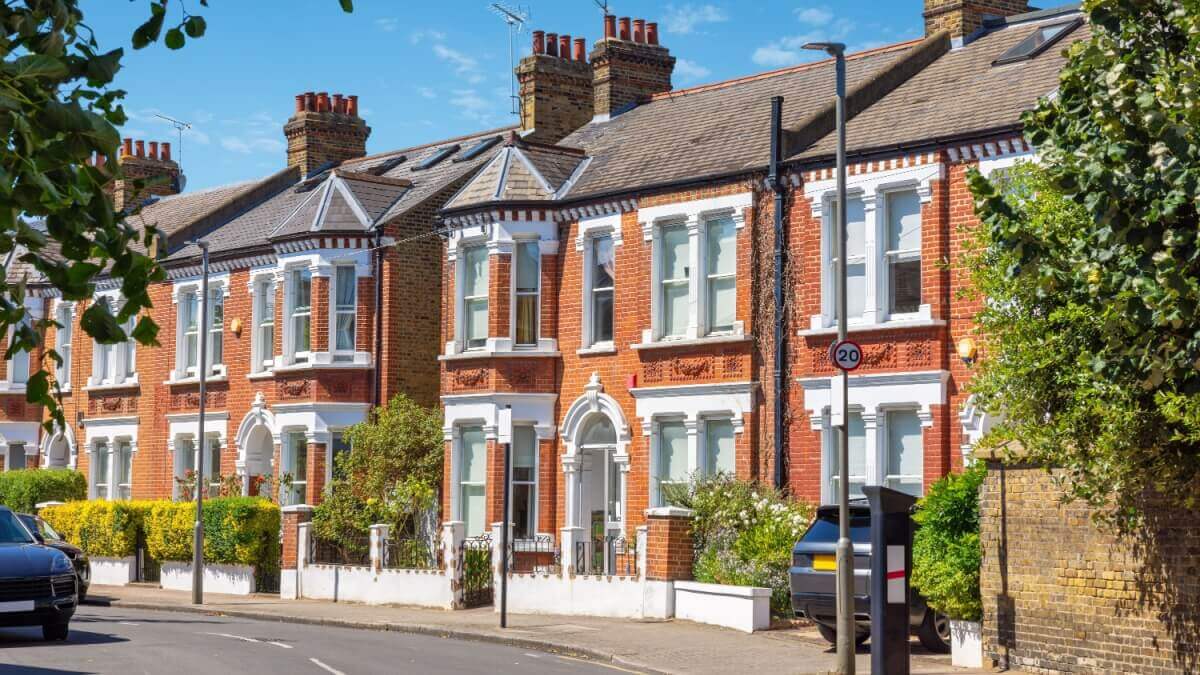Property tax in Turkey: UK guide
Read our essential guide to property tax in Turkey for foreigners and UK expats, including taxes on buying, selling and renting out property.

Been living in the UK and are now planning to move back home? Perhaps you have a UK holiday home or investment property, and now is the right time to sell it.
Whatever your plans, read on. We’ve put together a comprehensive guide for non-residents selling UK property, including info on fees, taxes and timescales.
We’ll also look at whether you need a solicitor and a real estate agent, and the steps involved in selling your property.
And if you need a low-cost, transparent way to transfer the proceeds of your property sale to another country, check out the Wise account from the money services provider Wise. It’s an international alternative to a bank account that lets you manage your money in 40+ currencies.
You can send, receive and convert money at great mid-market exchange rates and low, transparent fees*. Your money is always safeguarded and you’ll also get dedicated support when sending large amount transfers.
Learn more about the Wise account 💰
If it’s your first time selling a property in the UK, you’ll need to get to grips with how the process works.
You might have some knowledge of it based on your experience buying a UK home, but it’s a little different for sellers.
Let’s run through the main steps, so you know exactly what to expect.
Before you do anything else, it’s a good idea to get all the required documents together. This could help avoid any delays later on.
Here’s what documents you’re likely to need:¹
The next step is to find an estate agent to market and sell the property.
You don’t have to use one, and there are online services available to help you sell your property yourself.
However, an estate agent could be useful - especially if you’re unfamiliar with the local property market, aren’t living in the UK or aren’t comfortable with hosting viewings yourself.
An agent can also take care of key tasks such as:
In the UK, estate agents don’t currently need to be licensed or registered. So to find a good one, you may need to rely on personal recommendations or online reviews.
Now it’s time to officially put your property on the market and advertise it to potential buyers.
Before photos are taken and viewings conducted, it’s worth taking the time to prepare your property - to make it look its best and show off its best features. This may mean deep cleaning, decluttering and making minor repairs and improvements.
Your estate agent will play a central role in advertising the property, which may include listing in on popular UK property sites such as:
As soon as your property is listed (or even before then), you’ll need to appoint a licensed conveyancer, solicitor or other legal representative.
They’ll play a vital role in the process, assisting with drawing up contracts, checking documents, offering legal advice and completing all legal and administrative tasks leading up to completion.
When choosing a legal expert, make sure that they are a member of the Law Society of England and Wales. Conveyancers must be members of the Council for Licenced Conveyancers.
Buyers can submit offers directly to you, but it could be easier if they go through your estate agent. They can help you negotiate with buyers, make counter offers and agree on a final purchase price.
Once an offer has been accepted, the buyer will carry out due diligence checks. This includes commissioning a property survey, and having their solicitor carry out title checks and searches.
After this work has been completed, it’s time for sale contracts to be drawn up, checked, signed and exchanged. This is legally binding.
The buyer may also pay a deposit at this stage, which they may forfeit if they withdraw from the transaction.
Completion is the term used to cover all the final steps needed to complete the transaction, which includes:
| 💡 Read more: The best UK banks for sending money abroad |
|---|
Your circumstances will have a lot to do with whether or not it’s the right time to sell your property in the UK. For example, how much you originally paid for the property and what prices are currently like in the local property market.
But looking at the UK property market in general, now could be a good time to sell.
House prices in the UK increased 2.4% year on year (as of October 2024) and properties are selling.² According to data from HM Revenue & Customs, residential property transactions increased 9% to September 2024, compared to the previous year.²
So if you initially bought your UK home at a good price, now could be an advantageous time to sell.

On average, a typical UK property tends to go under offer within 32 days and sell (to completion) within 25 weeks. However, it can take anywhere between 17 and 34 weeks.³
The time it takes to sell a property can vary based on a few factors, some of which may be beyond your control.
For example, the buyer may take longer than expected carrying out due diligence checks, or there may be an extra legal or other complication which takes time to resolve.
It may also depend on the asking price and how fast properties are selling in the local market.
It’s strongly recommended to appoint a solicitor specialising in real estate or conveyancing work in the UK. They can draw up and translate documents, check over conditions of contracts, give you advice about the selling process and so much more.
This could make your property sale go more smoothly and crucially, help you avoid a costly mistake.
You may need a UK bank account in order to sell property in the country.
If you’re selling a UK home but live abroad, your conveyancer may ask you to provide details of an account held with a UK bank for at least 12 months prior to the sale.⁴
If you have an international account or off-shore account, you’ll need to speak to your solicitor to find out whether it can be used to send or receive money relating to the sale.
Another thing to note is that international transfers could get expensive, especially if the provider adds a margin to the exchange rate to convert your British pounds to your local currency. Consider checking out Wise to handle your international large transfers with mid-market exchange rates and low, transparent fees*.
Now, let’s take a look at the costs of selling property in the UK. There are a few fees and taxes you need to know about:⁵
| Tax/fee name | Rate/fee |
|---|---|
| Estate agent fees | 1% to 3% of sale price |
| Capital gains tax | 18% to 24% (on profit since 5 April 2015)⁶ |
| Conveyancing fees | Around £800 to £1,800 |
Estate agent fees in the UK vary between agents, but you can expect to pay anywhere between 1% and 3% of the overall sale price.⁵ This is likely to be one of the biggest costs you’ll face as a seller.
When you sell a property in the UK, you’ll need to pay capital gains tax (CGT) on the profit you make from it.
By profit, we mean the difference between what you paid for the property and what you sell it for, minus any fees and expenses.
There are separate rules for non-residents, known as Non-Resident Capital Gains Tax (NRCGT). This can be quite complicated, but here are the main points you need to know:⁶
Complicating things further is the fact that your own country may have rules on capital gains tax when you sell property abroad.
Tax can be extraordinarily complex, so it’s best to get advice from a tax specialist to help you understand your obligations.
Another significant cost to factor in is your solicitor’s fees. These vary between around £800 and £1,800, depending on location, solicitor, the value of the property and the scope of the legal work completed.⁵
For anyone considering moving to the UK (or staying there if you’re a temporary resident), it’s useful to know about tax residency and how it relates to property ownership.
Owning a property may have an impact on whether or not you’re considered a tax resident in the UK.
According to the UK Government, you’re considered a tax resident if you have a home in the UK and all of the following apply:⁷
You’ll also be automatically considered a UK tax resident if you stayed in the UK for 183 days in the tax year,⁷ or if you have a permanent resident permit.
Once the deal is done, you might need to work out the best way to transfer the proceeds from your UK property sale back home if you don’t live in the UK.
Here’s where Wise can help you save money and avoid those pesky hidden fees and exchange rate markups. Open a Wise account online and you can send money from the UK for low, transparent fees* and great mid-market exchange rates.
Here’s an overview of the main benefits for using Wise: |
|---|
|
Sources used:
Sources last checked on date: 20-Nov-2024
*Please see terms of use and product availability for your region or visit Wise fees and pricing for the most up to date pricing and fee information.
This publication is provided for general information purposes and does not constitute legal, tax or other professional advice from Wise Payments Limited or its subsidiaries and its affiliates, and it is not intended as a substitute for obtaining advice from a financial advisor or any other professional.
We make no representations, warranties or guarantees, whether expressed or implied, that the content in the publication is accurate, complete or up to date.

Read our essential guide to property tax in Turkey for foreigners and UK expats, including taxes on buying, selling and renting out property.

Read our complete guide to selling your property in Turkey, including info on the process, fees, taxes, legal requirements and more.

Read our essential guide to property tax in Greece for foreigners and UK expats, including taxes on buying, selling and renting out property.

Read our essential guide to buy-to-let mortgages for non-UK residents, including which providers offer them, eligibility requirements and costs.

Read our essential guide to property tax in India for foreigners and UK expats, including taxes on buying, selling and renting out property.

Read our essential guide to property tax in Pakistan for foreigners and UK expats, including taxes on buying, selling and renting out property.